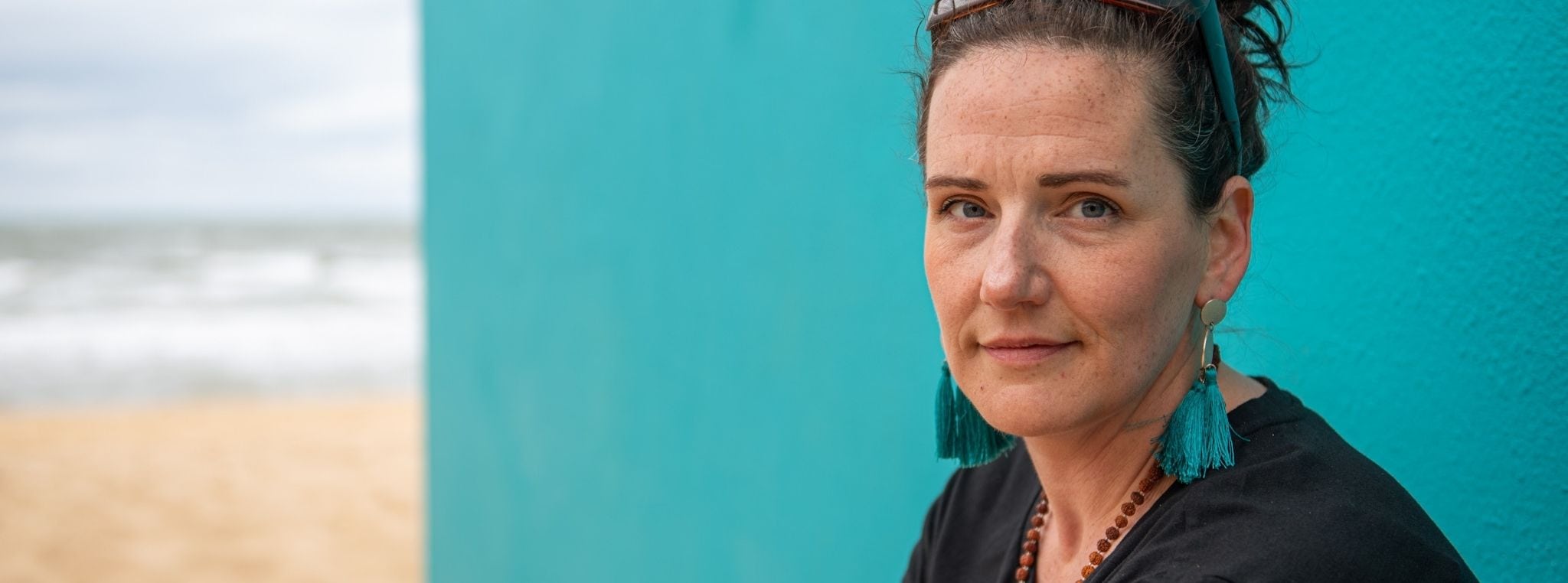You Can’t Be Authentic Without Being Vulnerable…So How Do You Get Past the Fear?
If you are a business owner whose success relies, to some degree, on real connection with your audience, then being willing to show up authentically is part of the deal. And let’s be honest, in today’s saturated service-oriented business market, being yourself is one of the quickest and most effective ways to attract your ideal clients. Like it or not, you are your brand.
Being authentic does not mean, however, that you have to share all the private details from your life. You are always in control of your messaging! But if there’s a gap between what people see and what they actually get when they work with you, the chances of building deep, lasting relationships may be affected.
The biggest thing I have learned- both personally and professionally- is that, to some extent, the fear of being vulnerable by showing up authentically never really goes away. It’s a practice. And the more you practice, the better you get at putting yourself out there, DESPITE the discomfort.
Having my photos taken by Miranda was a great example of this for me. After decades of intense personal work, I consider myself a confident woman. I generally don’t worry about what other people think of me. I’m hyper aware of comparison traps. I stay in my own lane. Yet, when it was time to have some pictures taken for my business, all those old fears came roaring back. So much so that I almost cancelled the whole thing.
But I didn’t. Instead, I sat with those yucky feelings, accepted them for what they were and kept going. That commitment on my part, combined with Miranda’s insane talent behind the camera and her desire to help the client see what she sees, resulted in the best photos I’ve ever had taken. When I saw the proofs, I cried (in a good way). It was like, “Oh! There I am!” Powerful stuff! I’ve often wished I had the ability to make others see themselves the way I do, even for a moment. That’s what Miranda did for me.
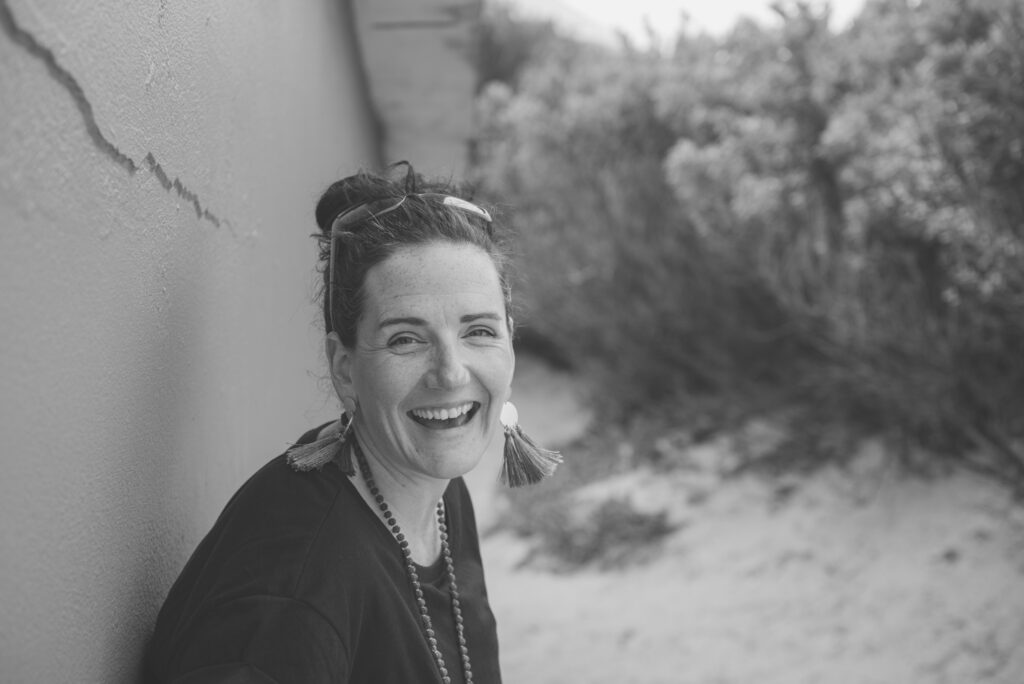
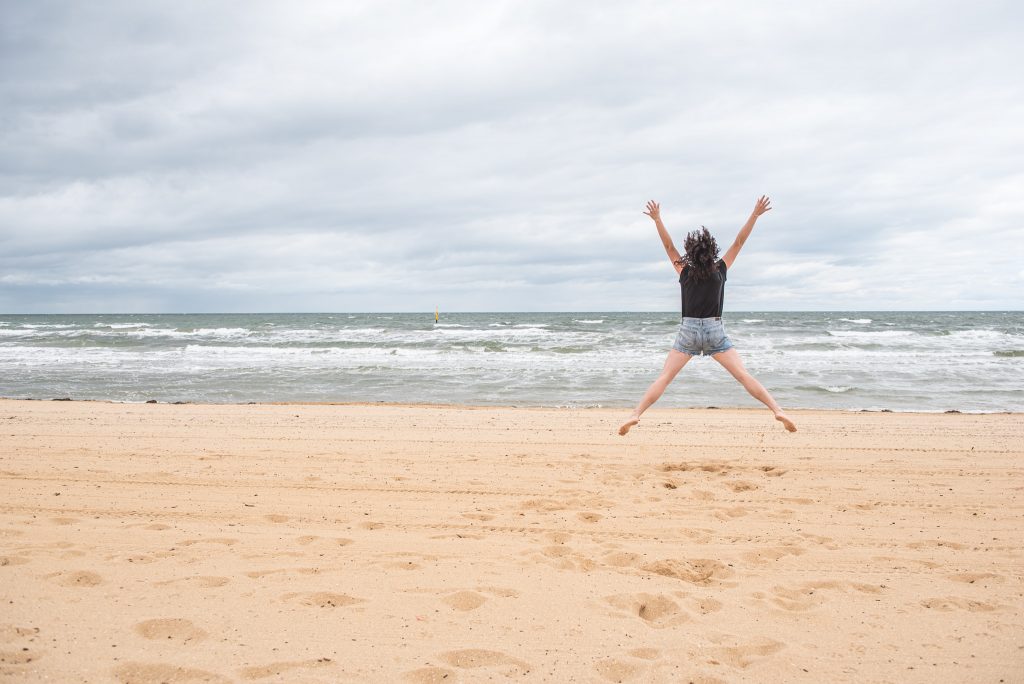
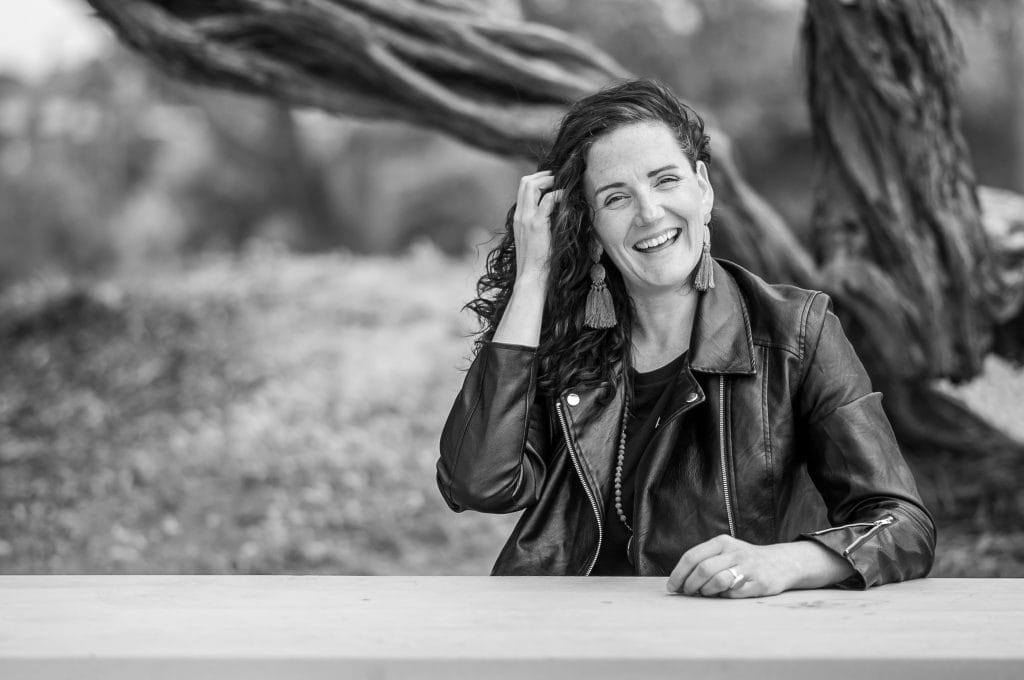
My invitation to you is to become aware of and accept the fact that showing up authentically- especially when it comes to having your photo taken- may feel uncomfortable. That being said, there are some simple tools you can use to dig a little deeper about WHY being vulnerable feels so…well, hard, so that hopefully it gets a little easier.
Unpack the emotions you’re feeling
Instead of sitting with a general sense of unease, dig down and try to clarify what’s actually going on.
- For example, instead of saying, “I feel nervous/scared/uncomfortable…” follow that thread by asking “Of what?” “What am I scared of?” “Why am I uncomfortable?” etc.
- Once you have some clarity about the root causes, explore potential solutions with an open mind. Worried that you’ll hate all the photos and be unable to use them? Talk to your photographer about what would happen in that case. Scared that you’ll lose potential clients because they “don’t like the way you look”? Ask yourself if those are people you want to work with anyway.

Become aware of common traps and self-sabotage methods
Here are a few I see a lot:
- Comparison: comparing yourself to other people in your industry or to who you “used to be”.
- Comparing yourself to others: Truth bomb…it’s pointless, damaging and a waste of your time and energy. One of the biggest benefits of owning your own business is the control you have over how you show up in this world, how you operate, and what’s possible. Why would you give that power away by letting other people’s actions hold you back? And when it comes to social media (I know you know this, but I cannot stress it enough!) you are comparing yourself to someone else’s highlight reel. So how do you stop? There are a couple of options here. You can choose to strictly limit the amount of time you spend looking at other people’s media. You can become super conscious of your thoughts and emotions when you do: is it inspiring you or just making you feel like crap? What are you hoping to get from it when you do look at how someone else is doing things? Is it a realistic expectation?
- Comparing yourself to who you “used to be”: This one shows up a lot for women, especially when it comes to our appearance or where we think we “should” be in our careers. We don’t weigh the same that we did when we were 18. We have more grey hairs. More wrinkles. We’re still struggling financially. We don’t own a home. You can choose to accept it and keep going. But if it’s a real sticking point for you, and you find it holding you back, I highly recommend you explore this, either on your own or with a professional like a coach or therapist. Most of the time, the passage of time is not the issue. It’s what we’ve left behind (grief), what we fear about the future or the chances we didn’t take that causes the discomfort. Identifying the root causes is a critical step in making peace with what’s passed and is no longer an option and making sure you’re moving forward with the clarity, commitment and support to chase those dreams that you’ve maybe just realised or the ones you thought you’d left behind.
- Other people’s expectations: PRO TIP: Anytime you hear yourself saying something like “A real______________________, would never________________” or “A real_________________, always does ______________”, pay attention! This is a huge red flag, and letting other people’s expectations get in your way is actually a common form of self-sabotage. Huh? Here’s what I mean. Let’s say I’m stopping myself from taking a certain action in my business because I’m scared of failure/success/ judgement etc. That’s my problem and I can take ownership. But the second I make the same decision because my mother/friends/colleagues/society etc. might judge me? It’s “their” fault (at least in my mind). How convenient! Not only do I not have to take action, but it’s also no longer my job to be responsible for my choices. Win/win, right? Except that victimhood is a shitty place to be, because you’ve just given all your power away. This can be a confronting realisation, so be honest AND gentle with yourself.
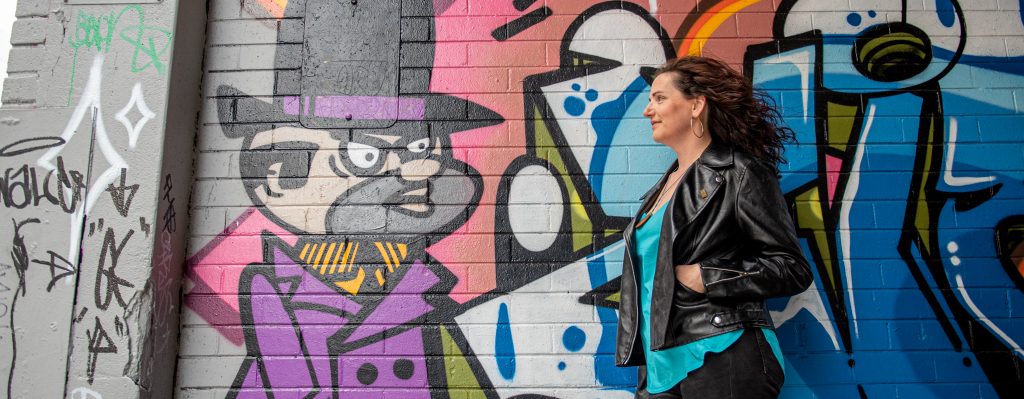
Be prepared for the vulnerability hangover
This phrase was popularised by Brene Brown, a shame and vulnerability researcher (I highly, highly recommend reading every word she has ever written!) This will look different for everyone, so the key is being aware of what it looks/feels like for you so you can have strategies in place to deal with it. Here are some examples from my own life.
- Public speaking: I have been speaking on stage for over two decades, in front of all sorts of audiences and I know that my nervousness hits me the moment I get on stage, and when I finish. Because I know this, I often incorporate some sort of physical movement in the first 60 seconds of a talk to release some of that energy (especially when doing stand-up!) and I’m prepared for the fact that afterwards, I’ll probably feel a bit yucky. Maybe a bit cold and shaky. That’s the side effects of adrenaline, so I know that moving helps, as does lots of water and then some scheduled down time.
- Sharing my work: always has been, always will be scary. So after I produce and share content, I put my phone away and do something else. The biochemical and physiological reactions we experience when we check for Like or Follows are very, very real and can have a huge impact on our emotional wellness. For every dopamine hit we experience when we see a positive comment, we experience a dip when we don’t. It’s up to you to manage your responses, and don’t be afraid to seek support if you’re struggling in this area.
- Practice/practice/practice: Find a safe way to practice vulnerability. Write and read a poem to a friend. Ask for something you want. Send your order back when they get it wrong. Tell someone they hurt you, and why. Now, I’m not saying these are easy. They’ll probably still feel gross (at least they do for me!) but every time you do this, you reinforce the new neural pathways you’re creating with new behaviour. Over time, these small, consistent actions translate to big gains in your ability to be vulnerable.
I sincerely hope this has been helpful in some way and – hey – if it was all old news, that’s great because it means you’re already a rockstar at being vulnerable! If you have any questions or comments, feel free to reach out. And if the idea of being authentic has left you in a spin because you have no idea who you are and how to do that or you found yourself thinking “Geez, I do that a lot!” while reading these examples? I’ve got a coaching package designed just for you. Check out The Second Half Playbook Coaching Package on Facebook
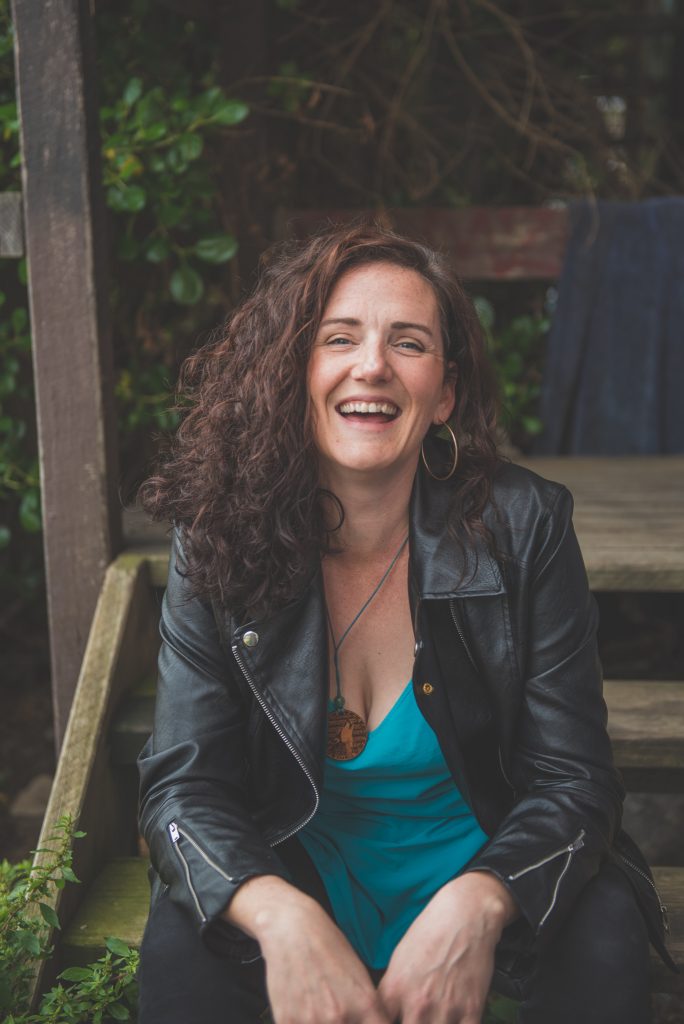
Super excited to share Meghann’s amazing words! Loving her advice because I know I’m guilty of some comparison self-sabotage!
Meghann Birks is a coach, writer, speaker and storyteller by trade and by nature. She uses a variety of modalities to help her clients live BIG including humour, traditional coaching techniques, embodiment practices and creative methods. She loves seeing women embrace and use their power to change their lives and the world around them. When not working, she can be found climbing trees and usually getting stuck.
Facebook: @MeghannBirksCoaching
Insta: @meghannbirkscoaching
Website: www.meghannbirks.com

